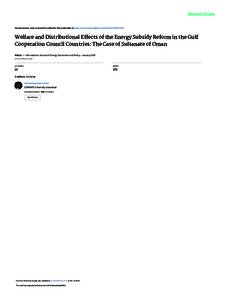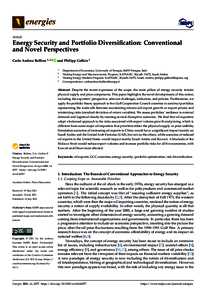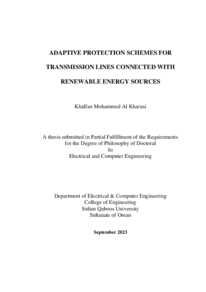وثيقة
Welfare and distributional effects of the energy subsidy reform in the Gulf Cooperation Council countries: the case of sultanate of Oman.
المعرف
DOI: 10.32479/ijeep.7142
المصدر
International Journal of Energy Economics and Policy. v. 9, 1, p. 228-236
المساهمون
Khan, Muhammad Aamir., مؤلف
الدولة
United Kingdom.
الناشر
Econjournals.
ميلادي
2019-01-01
اللغة
الأنجليزية
الموضوع
الملخص الإنجليزي
The gulf cooperation council countries (GCC) have recently embarked in an energy subsidy reform following the drastic drop of international oil prices in 2014. The reform consists of increasing energy prices (fuel, electricity, gas) in order to gradually phase out the subsidy and rationalize government expenditure. Governments however are concerned about the adverse effects of high energy prices on inflation, economic growth and the welfare of low-income households. The objective of this paper is to assess the economy wide effects of the energy price increase in Oman focusing in particular on income distribution as reflected in the Gini-coefficients and other inequality indicators. The study uses an extended version of the general equilibrium GTAP model (MyGATP) in which the single regional household was splitted into a government account and 8 household types based on the income and expenditure survey of Oman. Results indicate the effects of reducing the energy subsidy by 50% would lead to a slight increase in the gross domestic product by 0.62%, an increase in government saving by 2.9 billion US * and a reduction in household welfare by about 3% due mainly to the increase in the price index of private consumption (general inflation). The effect on the Gini coefficient is however very small showing little sensitivity in the short run of income inequality to the subsidy reform.
ISSN
2146-4553
قالب العنصر
مقالات الدوريات



